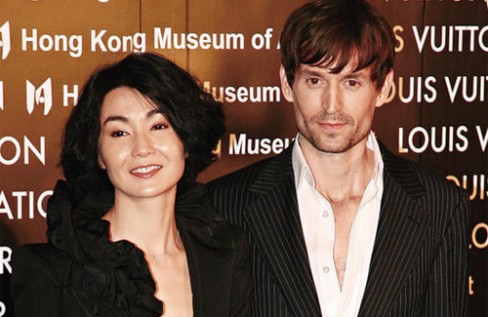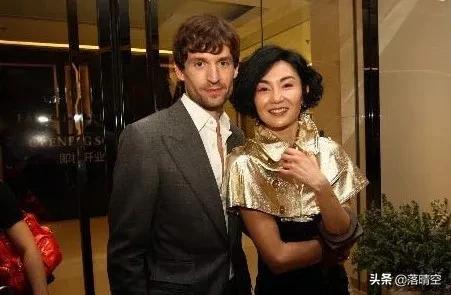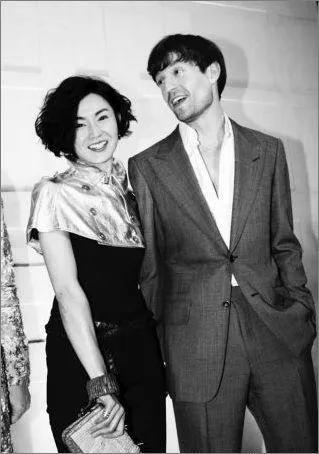Maggie Cheung Relationships: A Journey Of Love And Resilience
Maggie Cheung Man-yuk, an icon of Hong Kong cinema, has captivated audiences worldwide not only with her extraordinary acting prowess but also with her enigmatic personal life. From her early days as a beauty pageant contestant to becoming an internationally acclaimed actress, Cheung’s journey has been marked by significant professional achievements and, like many public figures, a scrutinized romantic life. While fiercely private, glimpses into her relationships reveal a woman who approaches love with passion, learns from heartbreak, and ultimately values personal growth and autonomy. This article delves into the known and rumored relationships of Maggie Cheung, tracing the arc of her romantic experiences through the decades.
The Dawn of Stardom and Early Romances
Maggie Cheung's entry into the public eye began in 1983 when she clinched the runner-up title in the Miss Hong Kong campaign. This pivotal moment launched her into the entertainment industry, and it wasn't long before her personal life became a subject of public interest. Early reports indicated that shortly after her pageant success, she began dating a designer named Eric. This initial public romance set a precedent for the media's fascination with her love life, a fascination that would follow her throughout her illustrious career.
Before her ascent to global stardom, Maggie's formative years were also shaped by family dynamics. Growing up amidst her parents' quarrels, she experienced their separation in 1980 when she was just 16 years old. This early exposure to the complexities of relationships, particularly the pain of a dissolved union, may have subtly influenced her own approach to love and commitment later in life. Despite these personal challenges, her career quickly took off. In 1984, at the age of 20, she starred in her first film, "The Frog Prince," directed by Wang Jing, marking the beginning of her remarkable cinematic journey.
- Nipple Clamps Use
- Curler For Long Hair
- Easy Maintenance Hair Colour
- Amazon Finds For Women
- Face Korean Sunscreen
Navigating the Limelight: Public Relationships and Their Impact
Throughout her career, Maggie Cheung has been linked to various individuals, but she has maintained a relatively private stance on her romantic endeavors. However, a few relationships have become widely known, offering insights into her experiences with love under the public gaze.
The Marriage to Olivier Assayas
Perhaps her most significant and publicly acknowledged relationship was her marriage to French director Olivier Assayas. The couple tied the knot in 1998, a union that seemed to bridge continents and cultures. Assayas, born in 1955, was a respected figure in European cinema, and their collaboration extended beyond their personal lives, most notably with Maggie starring in his acclaimed film "Clean" (2004), for which she won the Best Actress award at the Cannes Film Festival. Their marriage, however, was relatively short-lived, ending in divorce in 2001 after just two years. Despite the brevity of their union, their mutual respect and artistic connection reportedly endured, as evidenced by their continued professional collaboration.
The divorce from Assayas marked a significant turning point for Maggie. It was a high-profile separation that undoubtedly garnered much media attention, forcing her to navigate personal heartbreak in the public eye. This experience, as suggested by some reports, may have contributed to her more cautious approach to relationships in the years that followed.
- Holiday Gel Nails 2024
- Does Sofia Vergara Have Fake Boobs
- Best Shampoo For Frizzy Curls
- Curler Iron
- Brunette With Red Undertones
A New Chapter with Ole Scheeren
Following her divorce from Olivier Assayas, Maggie Cheung embarked on another significant relationship with German architect Ole Scheeren. Their romance became public around 2007, and they were together until 2011. Scheeren, who was 39 at the time their relationship became known, was a prominent figure in the architectural world, known for his innovative designs. This relationship further highlighted Maggie's openness to cross-cultural connections and her willingness to explore love beyond geographical boundaries.
Their relationship, lasting approximately four years, was another period of public interest in her personal life. Despite the attention, Maggie largely maintained her characteristic privacy, offering only glimpses into their bond. The eventual end of this relationship, like others before it, added another layer to her evolving understanding of love and companionship.
Other Publicly Acknowledged Connections
While her marriages and long-term relationships garnered the most attention, the data suggests that Maggie Cheung has only gone "public with only two relationships since her debut." One of these was with Hong Kong-Singaporean musician and manager Samm Chan (陳容森). The specifics of this relationship, including its duration and public visibility, are less detailed than her marriages, but it underscores her connection to individuals within the creative and entertainment spheres.
Beyond the Headlines: Rumors, Caution, and Personal Growth
Like many stars of her caliber, Maggie Cheung's romantic life has also been a subject of speculation and rumor. Her undeniable chemistry with co-stars on screen often led to whispers of off-screen romance, even if unfounded.
The Web of Rumors and On-Screen Chemistry
For instance, the data mentions Jackie Chan and Maggie Cheung as "just one example of a number of Hollywood's biggest names who have been romantically linked with one another over the past few decades." While they co-starred in several successful films, such as the "Police Story" series, concrete evidence of a romantic relationship between them has never surfaced, suggesting these were largely industry rumors fueled by their on-screen dynamic.
Similarly, her profound performances often created compelling emotional entanglements with her male leads. In Wong Kar-wai's "Ashes of Time" (1994), the complex emotional entanglement between Maggie Cheung's Murong Yan and Tony Leung's blind swordsman deeply moved the audience. While Maggie Cheung and Leslie Cheung were also in "Ashes of Time" together, and Maggie and Tony Leung have famously collaborated on multiple iconic films like "In the Mood for Love," these were primarily professional relationships marked by extraordinary artistic synergy rather than confirmed romantic ties.
A Heart That Learns: Caution and Resilience
The data suggests that Maggie Cheung has been described as "love-brained," implying a tendency to invest deeply in her relationships. However, it also highlights her capacity to learn from heartbreak. Having been "hurt countless times," she reportedly chose to approach subsequent relationships with greater caution, not wanting to "fall into an irreversible vortex again." This shift reflects a maturing perspective on love, where self-preservation and emotional well-being take precedence.
Intriguingly, the data also mentions that Maggie Cheung has "talked about 11 love relationships in her life, but each time ended in failure." While the specifics of these 11 relationships are not detailed, this statement paints a picture of a woman who has experienced a rich, albeit often challenging, romantic journey. Each "failure" was likely a lesson, contributing to her resilience and shaping her perspective on love and companionship.
In recent years, the public has caught glimpses of Maggie Cheung's evolving personal life. There was a report of her being "recently spotted on a date with a non-Chinese man, estimated to be in his early 30s," sparking renewed interest in her romantic status. This sighting, years after her last publicly known relationship, suggests that despite past heartbreaks and a more cautious approach, she remains open to connection and companionship.
The Evolving Landscape of Love
Maggie Cheung's journey through relationships mirrors her artistic evolution: a continuous process of learning, adapting, and growing. From the early days of public scrutiny to her more recent, private life, she has navigated the complexities of love with a blend of passion and pragmatism. Her experiences underscore the idea that while relationships can bring joy and fulfillment, they also present challenges and opportunities for profound personal development.
Her later life, as the data suggests, has been "full of various attempts and adventures," indicating a broader focus beyond just romantic partnerships. This suggests a woman who has found contentment and fulfillment in diverse aspects of her life, whether through creative pursuits, personal interests, or quiet moments of self-discovery. Her ability to move forward, learn from past experiences, and embrace new adventures speaks volumes about her resilience and self-awareness.
Conclusion
Maggie Cheung's romantic life, though often private and subject to speculation, reveals a compelling narrative of love, loss, and personal growth. From her early public romances to her marriages and subsequent relationships, each chapter has contributed to her journey of self-discovery. While she has experienced heartbreaks and "failures," these experiences have seemingly fostered a deeper sense of caution and a profound understanding of herself. Maggie Cheung stands as a testament to the fact that a life rich in experiences, both romantic and otherwise, ultimately shapes a resilient and remarkable individual, whose legacy extends far beyond the silver screen.
Article Recommendations
- Purpose Of Nipple Clamps
- Amazon Finds For Women
- Quincecoupon Code
- How To Make Blonde Hair Darker
- Frizzy Hair Hair Mask



Detail Author:
- Name : Leann Walsh
- Username : loy93
- Email : antonietta.wolf@kiehn.info
- Birthdate : 1981-03-17
- Address : 37165 Lucius Islands Rutherfordland, DE 08806-6629
- Phone : 1-706-656-8474
- Company : Schmitt-Rosenbaum
- Job : Textile Machine Operator
- Bio : Ut libero fuga perferendis illo eum deserunt et dolorum. Et ipsum rerum dolore enim. Rerum pariatur ut ipsam. Officia optio aut accusantium sequi. Et quisquam nisi enim.
Socials
twitter:
- url : https://twitter.com/jaren.cremin
- username : jaren.cremin
- bio : Eaque aut quisquam numquam. Pariatur et fuga possimus in. Quia doloribus officiis suscipit voluptatem.
- followers : 6862
- following : 1614
facebook:
- url : https://facebook.com/jaren.cremin
- username : jaren.cremin
- bio : Illum delectus et vitae dolorum beatae ex placeat.
- followers : 6861
- following : 505
instagram:
- url : https://instagram.com/cremin1975
- username : cremin1975
- bio : Sunt officia ut iusto nostrum aut eos voluptatem. Cum molestiae et ab voluptate.
- followers : 6950
- following : 194
tiktok:
- url : https://tiktok.com/@jaren_cremin
- username : jaren_cremin
- bio : Ut eum soluta quasi qui. Ipsa odit nam quisquam blanditiis minima ipsa soluta.
- followers : 3560
- following : 1815
linkedin:
- url : https://linkedin.com/in/jaren_cremin
- username : jaren_cremin
- bio : Illum et in eum in qui mollitia consequatur.
- followers : 511
- following : 2536